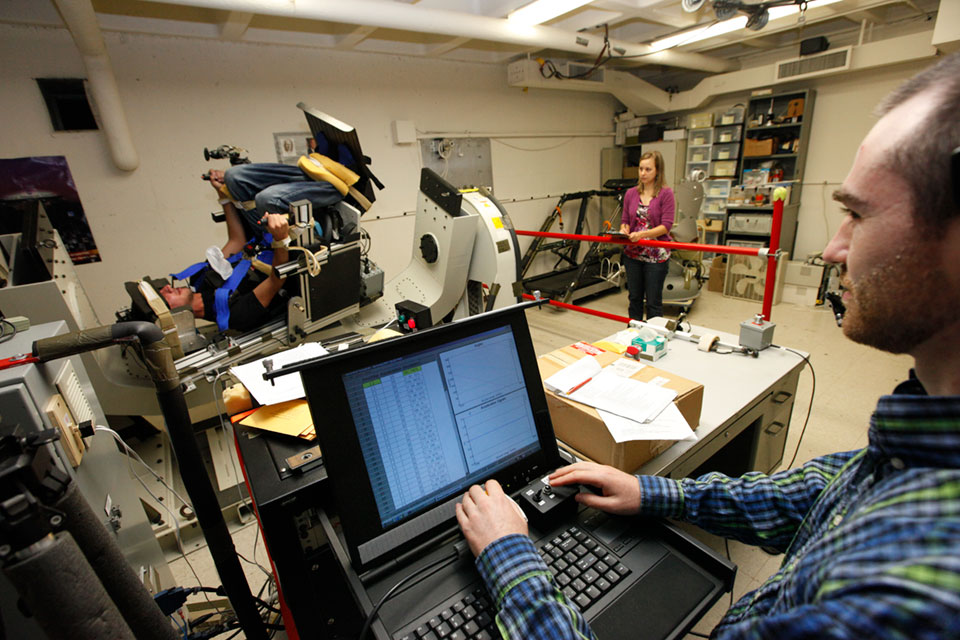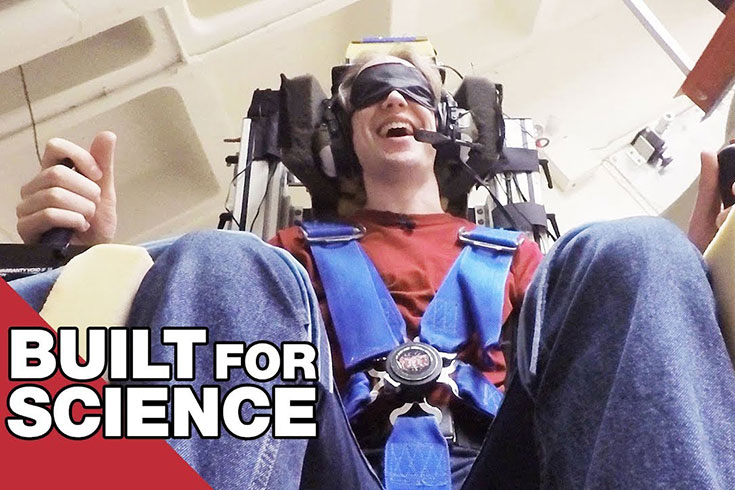
Video: Inside the Ashton Graybiel Spatial Orientation Laboratory
The Ashton Graybiel Spatial Orientation Laboratory is composed of more than 20 Brandeis University faculty members, researchers, staff and students drawn from a variety of disciplinary backgrounds and academic and professional experiences.
Our research helps to explain and solve practical problems in aeronautics, astronautics and clinical populations. Topics include sensory motor adaptation, motion sickness, perception of human body orientation and the effects of varying force environments on the control of movement, posture and balance.
The Graybiel Laboratory’s experimental program is designed to advance our effort to develop a predictive model of human vestibular orientation, posture and neural control of movement.
Study With the Lab
The Ashton Graybiel Spatial Orientation Laboratory is part of the Volen National Center for Complex Systems, which houses the interdepartmental neuroscience program at Brandeis University.
Students who would like to study in the Ashton Graybiel Spatial Orientation Laboratory should apply through the Neuroscience Program or through the Department of Psychology.
The first step is to contact Professors Paul DiZio or James Lackner.
Related Video
Tom Scott from Built for Science talks about his experience using the Multi-Axis Rotation and Tilt Device (MART).
